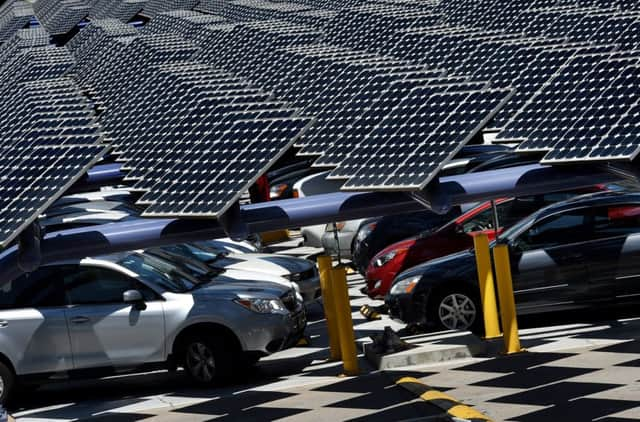How we can tap into global energy markets


The energy industry in Scotland has been reeling from a double whammy. The collapsing oil prices have hit oil and gas companies hard while renewables industries have faced a critical loss of investor and business confidence as a direct result of the UK government’s reset of energy policy over the past nine months.
But the challenges facing the energy industry are not restricted to Scotland. The recent announcement that Peabody Energy – the biggest private coal company in the world and one of the titans of the US energy scene – is close to bankruptcy tells of a more fundamental realignment of the energy industry around the world. And this is echoed by the travails of EdF, the largely French government-owned utility, which has been forced to ask the French government to underwrite its costs to build the UK’s first new nuclear power station in a generation at Hinckley Point. If built, that plant will be the most expensive power plant in human history, with the cost passed on to British consumers for 35 years.
Advertisement
Hide AdAdvertisement
Hide AdThese economic difficulties of large coal and nuclear firms are a direct consequence of the rise in demand for flexible, low-cost, clean energy around the world, and the reduction in demand for energy by heavy industry in China. The beneficiaries are gas and renewable generators. So while Scottish companies are suffering in their home market, there are increasing opportunities aboard.
For example, India has targeted the provision of secure supplies of electricity to all its 1.3 billion people. At present, 240 million people currently lack this basic enabler of modern life. India aims to deploy by 2022 more than 170 GW of renewable electricity – about twice the size of the entire UK power grid – largely through local grids of solar panels and wind farms. They are also seeking effective investment models for the required $200billion (£140bn).
Meanwhile on the other side of the world California, like Scotland, seeks to be a global leader in transforming its energy system. It has the world’s leading market for electric vehicles, with plans for 1.5 million zero emission vehicles by 2030, and is the leading market for stationary energy storage. At present, nearly one quarter of California’s electricity is produced from renewable sources, with the aim to increase that to one third by 2020. This is mostly from solar, but emerging opportunities exist around marine sources of energy.
While both Scotland and California have demonstrated that radical increases in renewable electricity generation is possible, the next step – of delivering affordable clean energy across all aspects of energy use – is much more challenging. No country has yet achieved such systematic change in their energy systems. There is no “one-size fits all” solution but there are common experiences, technologies and financial models that can be applied.
At the Edinburgh Centre for Carbon Innovation, part of the University of Edinburgh, we are interested in understanding and sharing what works and what does not when scaling up the provision of affordable clean energy. We have been visiting India and California to understand their successes and their challenges. And we are developing partnerships with government agencies, businesses and academic institutions in these countries to build a platform for better sharing this knowledge. We are bringing this information back to our business and social enterprise networks in Scotland, to help local Scottish enterprises develop products and services that can exploit the market opportunities in these countries.
We are also collaborating with institutions in these countries so we all become more effective at putting leading research insights into practice: in developing and deploying new technologies, in using insights to human behaviour, in improving public policy and in application of better financial models. On these visits we have been running presentations and workshops with a range of participants including clean tech investors, leading edge energy companies and university researchers. We showcase Edinburgh and Scotland’s activities and expertise in energy innovation and research.
What is clear in all the countries we are visiting is the recognition of Scotland’s leading role in developing and deploying a clean energy system. The scale of the opportunity is also apparent. Scottish universities, through their international students, and Scottish businesses can be at the forefront of helping other countries on their path to a clean energy system. So while prospects may be challenging for businesses in Scotland, the opportunity to internationalise is huge.
To meet that need, the University of Edinburgh has created a new innovation centre in Hong Kong, to support Scottish enterprises and develop partnerships with Hong Kong institutions. It has opened offices in Latin America, USA and India to support engagement with potential students and enterprises in these regions. These activities are growing exponentially, They will help Scotland to build its export potential around highly innovative energy companies, many of which will have been spun out or supported by universities, and the highly valued education opportunity for international students at leading Scottish universities. In other words, Scotland is well positioned to take advantage of the disruptive changes sweeping through the energy world.
- Andy Kerr is executive director of Edinburgh Centre for Carbon Innovation, University of Edinburgh
www.edinburghcentre.org
SEE ALSO